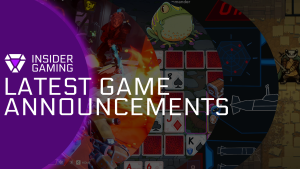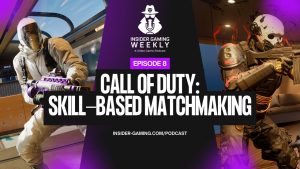The life simulator genre is full of some of the most creative and passionate gamers in the world. For years, the space has been dominated by EA and The Sims with other companies trying to provide an alternative to what’s offered. Korean studio Krafton is the latest to attempt to enter the market with inZOI, a life simulation game “where the player can alter any aspect of their world to create unique stories and experiences.”
Recently, I was able to sit down with director and producer Hyungjun “Kjun” Kim to talk about the game’s development, the response to the character creator over the summer, competing with The Sims, and more.
The game is set to enter Early Access on March 28, 2025 for PC via Steam. Over the summer, the studio released a demo for its character creator that had over 100,000 custom characters created and shared worldwide.
You can read the full interview below. The quotes come via an on-site interpreter from the interview.
I really want to start with talking about the character creator because that was a massive hit with thousands of people playing it, thousands of people showing their creations. What were your thoughts on seeing that type of response to not even playing the game, just seeing people create their characters for the game?
The reason why we prepared this strategy of launching a character creation demo along this Gamescom period was that we hoped that people would like it. There were some demands from the community saying that they would at least like to get a taste of inZoi because it’s still far away as to getting the full hands-on experience. We wanted to try to provide as much as we can, but we were also worried at the same time because everything is still in development.
It’s not the polished, complete product. As developers, we always worry about not showing the best possible version of what we’re trying to create. Moreover, the thing that we really wanted to achieve was not people just creating the characters within that demo and just calling it a day, but we wanted people to share those creations with others.
I’m sure because you covered this demo, you’re aware of the Canvas aspect of the demo where you have to upload it, and then your creation gets seen by other users who are playing the demo alongside you all around the world. They get to download it and once again enjoy your creation in the same way. He was hoping that would be the final step that everyone would like to take, and thankfully that became the case.
We reached really high numbers of shared creations on Canvas, so we were really happy about that.
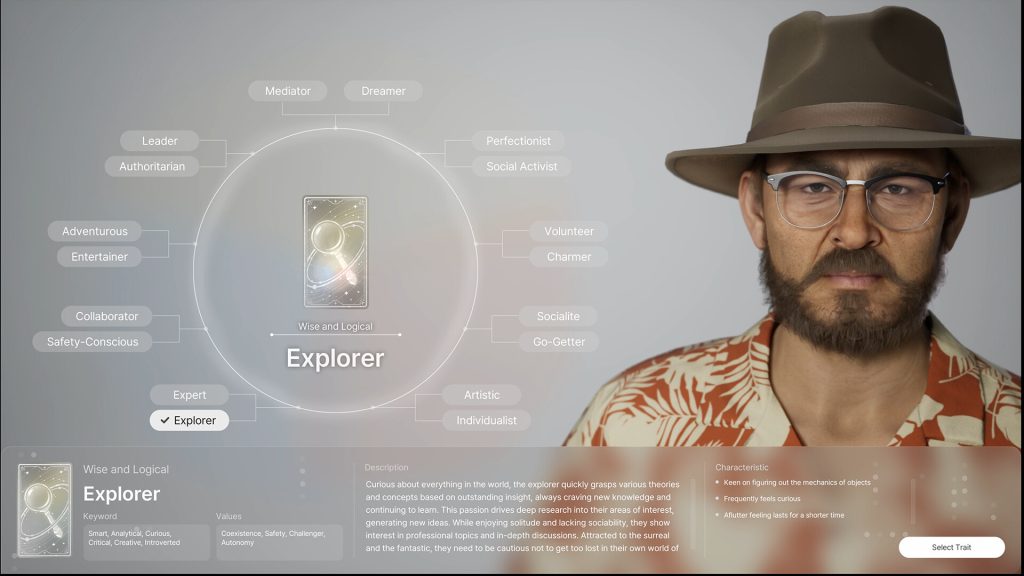
The space has been owned by The Sims for 20 years at this point. People are looking for something new, they thought they were going to get it with Life by You from Paradox. That ultimately, for whatever reason, fell apart, cancelled, and now people are spotting inZOI and they really think this could be the next big challenger to give them an alternative. Does that put any added pressure on you as a team?
Well, it does add a lot of pressure because when the attention is kind of sparse, it’s a little easy to take the little chunk of the pie and say we did our part and there you go. But we do realize that the attention has been sharply directed towards us because of those cancellations of Life by You and other projects not coming to life quite yet. But the thing that he wants is not to really take over the genre in any way, but just to think that he wants to co-exist with the other games that are within this space.
So I think being as a player too, we just want to have many options to kind of dive into. So if we want to play a game like The Sims, we can do that. But if we want an experience to enjoy every now and then, we can do that too.
So from a player’s perspective, that’s kind of how it feels. From a developer standpoint, the life simulation genre, coming from an MMO and mostly the RPG genre, creating this vast world and thinking that life simulation is a small little space, how difficult could it be? So at the start, it was pretty easy strolling.
But as soon as it got to the depths and the nuances and all the intricacies of what life simulation genre ultimately turned out to be, it turned out to be a really, really difficult genre to continue developing. So we’ve always expressed many respects to previous developers who kind of worked on that same genre.
What’s the feeling on where things stand right now with the development of the game? Obviously, we’re still a way away from a full release and everybody getting their hands on, but if you were to put just a feeling today of where things stand, what would that be?
He’s [Kim] really never satisfied. And the real reason why he explained that was because as a longtime player to Sins, he has this inner expectations of what this game is supposed to be. And truth be told, the excuse of we’re still developing, we’re not there yet, and we still haven’t released.
To him, that’s an excuse because all he sees is a game that’s very, very incomplete and very, very far away from what he ideally wants this game to be in terms of an experience standpoint. And because him talking about coexisting with the Sins in a way to be another fun option for live simulation players, he really wants to have this dedication to continue developing this game to be better and better, even after our eventual early access launch to never really be satisfied, but also to, in that same way, use that as a positive reinforcement to making the game better all the time.
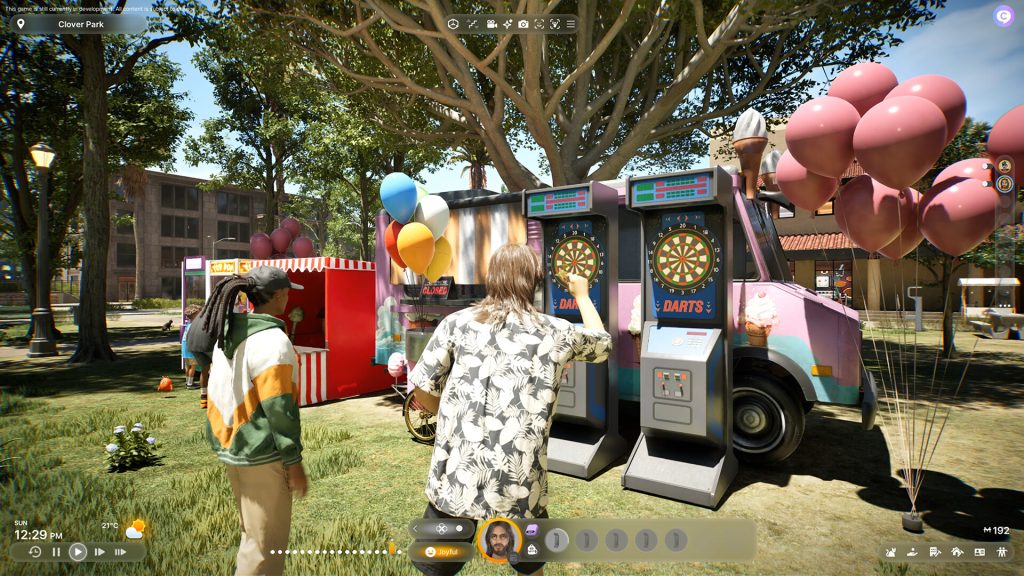
If it’s going to coexist with the sims on the market, there’s got to be a big reason to give it a shot. Obviously, the visual fidelity of the game, the character models look fantastic, the visuals just look great. But what would be, what’s the gameplay aspect you’re really hoping will get players to give inZOI a shot?
here are some beyond the often realistic moments that are provided by the sims. There are a lot of diving into the fantastical elements, where you’re talking about ghosts and you’re talking about all these different fantasy characters that you can be in the sims. But that’s where I think he believes that the inZOI does differ quite heavily from what the direction that the sims is trying to provide in terms of experience.
Because we’re trying to provide a little bit more of a realistic experience. Those kind of ordinary life moments that we kind of feel as we live our own lives, that those little moments where it has bigger meanings than what it initially seemed out to be. Those are kind of things that he wants to express so that when people get into the game and get into this world that we’ve provided, people will feel those very unique moments of life.
And be able to recreate that through a video game that we’re calling inZOI. To have a more of a second realistic experience, but through a video game media is what he’s hoping to accomplish. So that when people want the imaginary fantasy elements from the sims, but just kind of want to maybe chill down a little bit and calm down and maybe enjoy the kind of a replication of realistic life.
And then they can kind of relate back to inZOI at that moment. So that’s kind of the whole reason why him and the entire project is kind of pushing towards this descriptor of our game to be called a realistic life simulation more than anything else. I mean, just he wants to put out some examples as something that he really wants to work on is that, you know, relationships, especially romantic relationships, they’re not always easy.
And in video games, it kind of makes us feel like they’re easier than what they actually are in real life. So he wants to try to replicate that as accurately from his knowledge as possible to kind of let people experience that, you know, the reality of developing relationship is not always fun and roses. This is sometimes difficult, sometimes painful.
And there are some, you know, these mixed emotions that kind of go along with that. And he hopes that people will be able to experience that, you know, through a video game like inZOI. And another example is, you know, kind of relating to that, like, let’s say you get into a divorce, right?
It’s not saying, you know, you just put a paper and you’re just done with it and no emotions are exchanged. There’s a lot of emotions that are exchanged between that. And also, you know, realistic things like how do you split the finances of the husband and wife?
And sometimes, you know, it doesn’t feel fair as to how the results come out after a long series of arguments. Those kind of instances where, you know, just because it’s a video game, you think it would logically give you the result that you’re expecting. But, you know, having those unexpected moments where sometimes, you know, this is not the correct calculation, as one might say, but still that could, you know, it could trigger a type of emotion that is pretty unique to have in a video game is what he wants.
And he already mentioned visual, but he wants to kind of elaborate just as simply, just very basically on that. Because he believes there’s a need for people to be creators. But, you know, in our modern technology field world, you need a very high skill gap in terms of being able to create as much as you can imagine in your head.
But he hopes to provide more tools that are more intuitive, that are easier to use so that you can, you know, be a creator and recreate things that are in your mind, but just kind of visualize it in the game. And one of the example is, you know, being able to kind of sync your iPhone into the game and then you do a whole facial tracking where we have so many points where just follow every little movement of your face and that gets mirrored into your character’s face. And that he thought that that would be a good use for, you know, VTubers nowadays who are really into that space and just kind of create an inZOI character and just sync your iPhone.
And there you already have a full on VTuber experience that you can create really, really easily through the game.
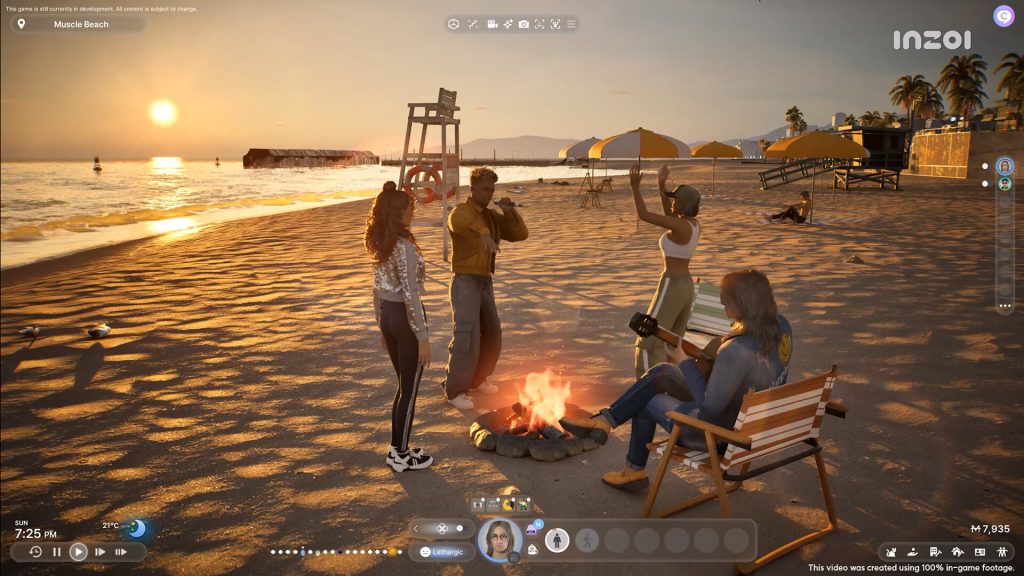
You talked about developing, like the difference between developing for Korean audiences versus a more global audience. Has there been any obstacles or what have been like any sort of obstacles that have gotten in the way to make sure that you’re building something for a much larger player base?
He [Kim] definitely felt a lot of difficulties with that from the start because he understood that, you know, when some games, when created by certain regions, but aren’t able to reach other regions because of that, lack of cultural understanding and the things that people will perceive.
It’s already been a proven fact that if you don’t work on this extensively as someone who doesn’t know the cultures of the other audience that you’re trying to reach, it just doesn’t turn out to be a success. So he knew that from the start and very proactively, he tried to reach out to a lot of our offices beyond Korea. So we have offices in America, offices in Europe, and where we try to gather information and insights and feedback from when we show our development stages of the games.
What do you think about this? What does this look like? Is there anything awkward about this?
So always that back and forth Q&As did happen because of that reason. And he felt like that was very, very helpful for him. And kind of extending to that, he also hired foreign employees into our project where initially it was just all Koreans, right? Mostly people who always worked here.
So he felt the need to hire foreign individuals to have a little more deeper insight into very little details of the games because he felt like those were going to be what separates us in terms of games that do not try as hard to achieve that aspect of it.
Why is the game named inZOI? Is there a reason behind the name?
So the keyword from that, as you might expect, is the word zoi. And for him, while he was searching through so many different words and keywords to base this game name off of, that word zoi really stuck with him. So it’s originally a Greek word that means “life”.
But as you know, with being a journalist, so many words and terminologies change over time because of culture differences and evolution and how people want to express different things. But the unique thing about that word ZOE from a Greek perspective is that that word has stayed true to its meaning for over a thousand years. And that purity aspect and that really, I guess, very enduring aspect of what that word kind of represents was something that he really related to.
And as he was essentially creating a life simulation game, he didn’t want it to be just kind of an external simulation where it’s not really real, but it’s trying to be life. But he really wanted to create a game where it makes you feel like you can really live out life. That’s why he’s adding all those not so positive elements to the game to hopefully to provide a good balance that he believes that ultimately provides the most satisfaction of playing a game where it’s not all just, you know, happiness and good things happen.
But, you know, those mixtures of unfortunate and unexpected events, when they do happen, when you put it all together, it creates this really magical thing that he believes provides the most satisfaction. So to say it’s an in-ZOE is that you’re in a way you’re in the life. In the life, you’re really living and recreating and reliving life through this video game is what we also want to represent.
But also at the same time, as the entire work kind of depicts, he wants players to, in the end, just kind of enjoy life through this game. Because, you know, by experiencing all these different elements, different aspects of life and kind of experiencing them through the game, he feels like you can have a better appreciation of life, of the life that you’re actually living yourself. But you can do that as kind of a segue through the video game.
And hopefully that’s what he hopes to achieve through this game.
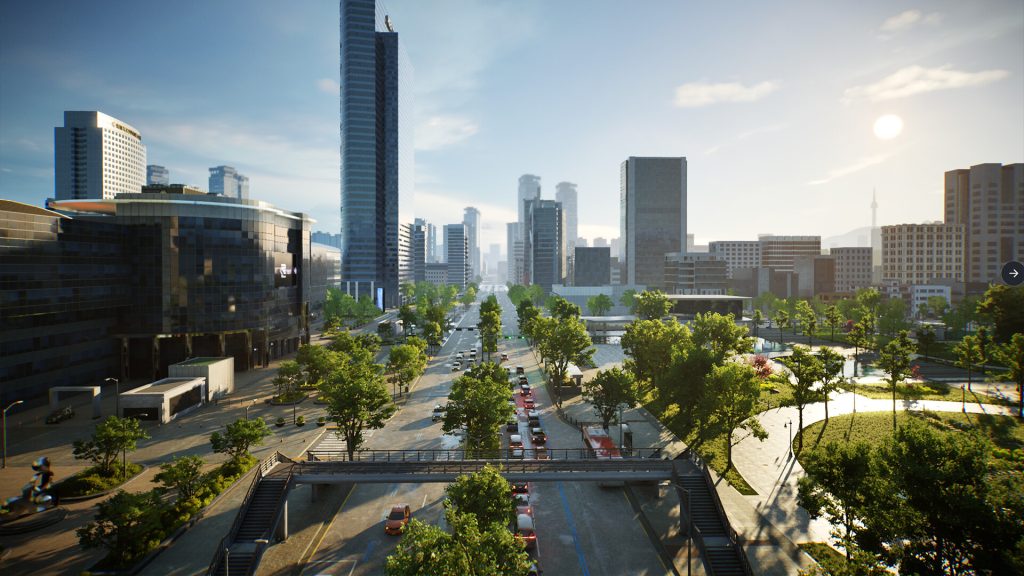
So is there anything that you’ve taken away from the feedback from the character creator, or maybe through talking to people, whether it was at Gamescom or elsewhere, about what maybe can change in order to get a hold of the North American market compared to other areas?
So before he elaborates on what he thinks he should do for the game to kind of reach the market, he sees kind of the North American market as not just a large chunk of the pie in general, but because this is a live simulation game where historically, North American players have been playing the game for a long time. So North American players were very attached to this genre more than other regions. So he felt like because of that reason, it’s a very, very important market for inZOI as well.
But with that said, even through all this feedback that he’d gotten and all the responses that he got at games come offline and online through all the comments and feedback from influencers and the viewers of the influencers altogether, he still feels like he doesn’t want to jump to conclusions as to what that solution will be. And he doesn’t want to assume that he knows the answer to everything at the moment, because he feels like he’s always taking this, because I’m speaking for him, this humble stance of really not knowing and not being certain that you know everything, but to always use that attitude to continue to listen to players and continue to communicate as directly as we possibly can to really find out what is it that they want from the game. What should be improved so that it becomes more relatable, more familiar, and essentially more fun in the end in terms of that experience.
So it will be a continual progress because as he thought from the beginning of development that this was going to be a huge assignment for him to completely understand the cultural differences between Korean culture and the Western culture. It’s an assignment that he’s going to be still continuing to be working very vigorously on.
Just kind of one funny example of one of the first things that he realized as he was discussing the cultural differences between Korean and Western cultures that, you know, when you have a sofa, right? When you have a sofa and people typically sit on the sofa, right? That’s understood, right?
That’s probably why the thing was made. But it’s so common in Korea for people to sit on the floor, leaning their back on the leg of the sofa. It’s such a common thing in Korea that he didn’t think twice about, you know, because we have another map called Bliss Bay, where it’s supposed to be a replication of the United States.
And when he actually added that feature to a household where, you know, the people in Bliss Bay sit on the front of the sofa, leaning their back on the legs of the sofa rather than sitting on it. He didn’t realize at the time that that was such an awkward, you know, visually awkward situation from an American standpoint. So, you know, simple things like that, while he thought, you know, we can only assume that because it’s so common in Korea, everybody else around the world does it.
But that’s why he another reason that you can’t just assume that everything he knows is the answer. So he’s going to take that humble act to keep on communicating to find out what the answer is.






